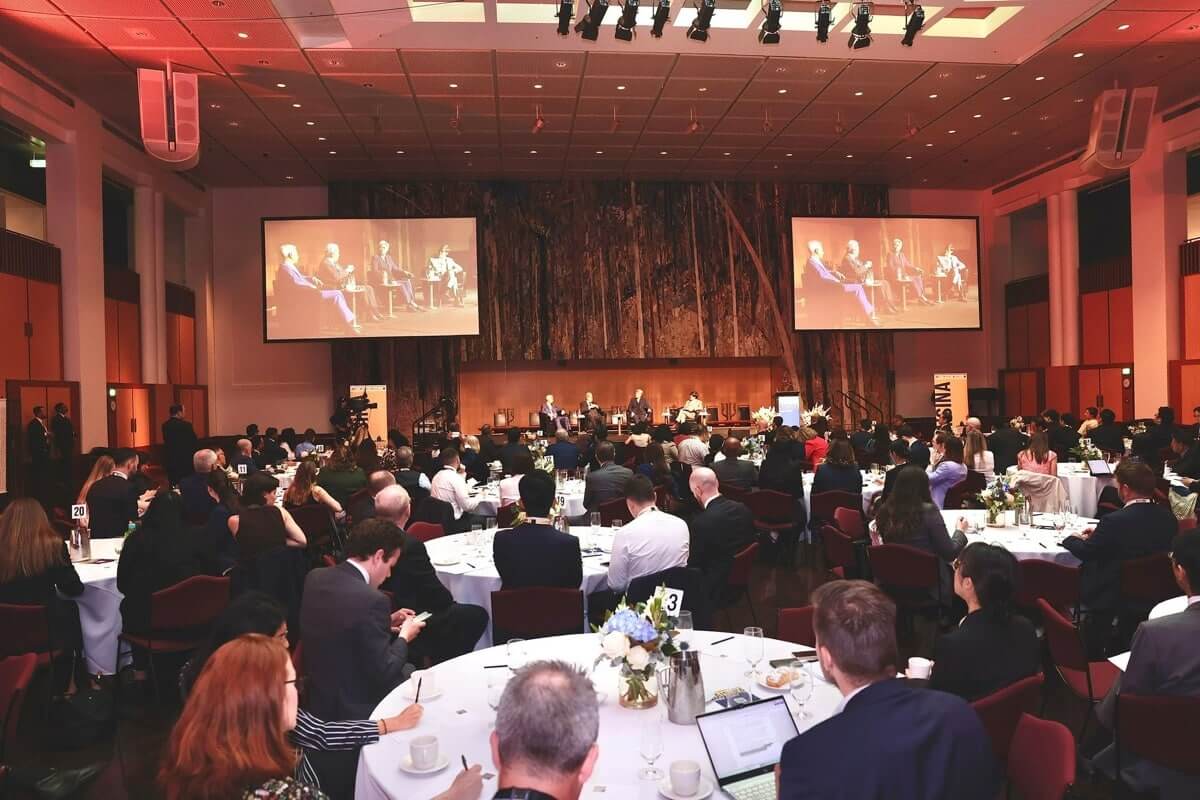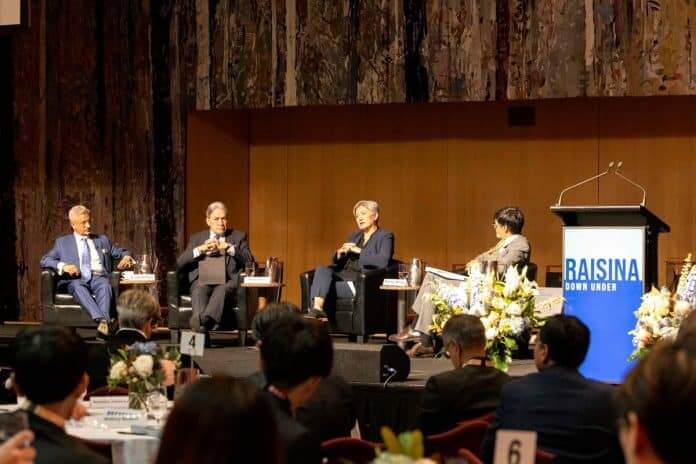Dialogue and diplomacy are at the centre of the world we are living in, which is characterised by disruption, uncertainty, unpredictability, new actors, and new behaviours. The dynamic geopolitical-strategic-economic landscape is constantly reinventing the rulebooks of power, principles, and values on which the new world should be based and embraced. As developments unfold and our interdependence becomes more evident and urgent, people, ideas and imagination are becoming more integral than ever to this shifting paradigm.
‘Raisina Down Under’ the second edition of Australian iteration of India’s Raisina Dialogue, which was created in 2016, represents this evolving dynamic. It is one of the world’s premier gatherings on geopolitics and geoeconomics, bringing together leaders from government, business, media, and civil society. Hosted by the Observer Research Foundation (ORF) and the Australian Strategic Policy Institute (ASPI), in partnership with India’s Ministry of External Affairs and Australia’s Department of Foreign Affairs and Trade, the inaugural edition was in Sydney last year. This year, it was held in Canberra, highlighting the strong government intent in facilitating Indo-Pacific conversations to define the future of this dynamic region that stretches from the Indian Ocean to the South Pacific.

‘Raisina Down Under’ engaged with groupings and regions – ASEAN, BIMSTEC, and the Pacific Islands – that are central to future growth, development, and geopolitical balance. The two-day event, focused on the thematic pillars of geopolitics of the Indo-Pacific, regional partnerships, blue economy and green growth, climate and clean energy, critical minerals, emerging and critical technologies, infrastructure and connectivity.
The forum asserts the new compelling reality, premised on cooperation, coexistence, coordination and collaboration, reimagining new ways to grow and engage. It states how diplomacy and communication can reshape development trajectories for the Indo-Pacific.
Why ‘Raisina Down Under’ matters
Engagements in the Indo-Pacific, Quad, trilateral frameworks, and supply chain resilience initiatives are testimony to countries overcoming their own past outlook to forge collective peace, stability, and economic gains, relying on core concerns of development, growth, and welfare. The ‘Raisina Down Under’ discussions reinforced this shift. The event marked the 20th interaction between India’s Minister of External Affairs Dr. S. Jaishankar, and Australia’s Foreign Minister Penny Wong. Notably, it also featured New Zealand’s Foreign Minister Winston Peters, underscoring the commitment of New Zealand’s government under Prime Minister Christopher Luxon to strengthen ties with India.
As Minister Penny Wong stated, “The Australia-India bilateral relationship is one of the most transformed of the decade, driven by several key factors: our shared vision for the region, the diaspora as the beating heart of the relationship, a mutual recognition of the value in collaborating, and an understanding of the region’s reshaping.”
Australia, India and New Zealand are investing in our region and in our relationships to build our collective resilience.
Wonderful to share a stage with @winstonpeters and @DrSJaishankar. Thank you to @orfonline and @ASPI_org for hosting Raisina Down Under in Canberra today. pic.twitter.com/Quv54h0SLL
— Senator Penny Wong (@SenatorWong) November 6, 2024
Dialogues like the Raisina Down Under are an opportunity to nudge and evoke debates that challenge historical perceptions, mirror the new world and showcase India’s aggregate strategic and geoeconomic weight and influence. The platform widens the ambit of bilateral discussions to a greater set of stakeholders and revives debates on the need to shift away from traditional centres of power to emerging economies. It echoes that the new world is far more inter-penetrative and inter-dependent, driven by new architecture, new narratives, new metrics of power and new metrics of engagement.
The panel sessions explored a range of interconnected global challenges and opportunities, emphasising the importance of catalysing and capitalising, building purposeful communities in an increasingly DIY world. Key themes included the need for agile, liberal, and responsible foreign policy that ensures mass access and aligns with evolving global priorities, from climate change to economic resilience. Discussions highlighted the significance of adaptability and empathy in diplomacy. Climate change was framed not only as an environmental challenge but also as a strategic and economic priority, driving discussions around climate finance and public-private partnerships to support energy transitions.
The Foreign Ministers of Australia, India & New Zealand ahead of their panel discussion at the Raisina Down Under conference in Canberra. @DrSJaishankar @SenatorWong @raisinadialogue @orfonline @ASPI_org
🇳🇿 🇦🇺 🇮🇳 pic.twitter.com/yrdvOE4M5q
— Winston Peters (@NewZealandMFA) November 5, 2024
The existential threats facing Pacific Island nations, and the monopolisation of critical mineral supply chains were noted as urgent issues. There was a call for a global approach to education, skills development, and workforce preparation, emphasising the importance of creating human bridges with agency and empowering smaller nations with more choices. The conversations underlined the need to prepare for the future by viewing resources, technology, and skills as global pools that require inclusive, forward-thinking strategies.
Raisina Down Under reinforces the idea that bilateral ambition can be well actioned through better institutional chemistry and aligning with greater comfort and openness on difficult problems in the world. Going forward, the Raisina Dialogue in Australia could aspire to be that impactful Pacific Forum, that enables and offers solutions to the region’s most pressing problems for a shared future. All that’s needed is making bilateral engagement a forever national project that is transition and situation agnostic.
Read More: Minister Jaishankar’s jam-packed four-day visit to Australia





